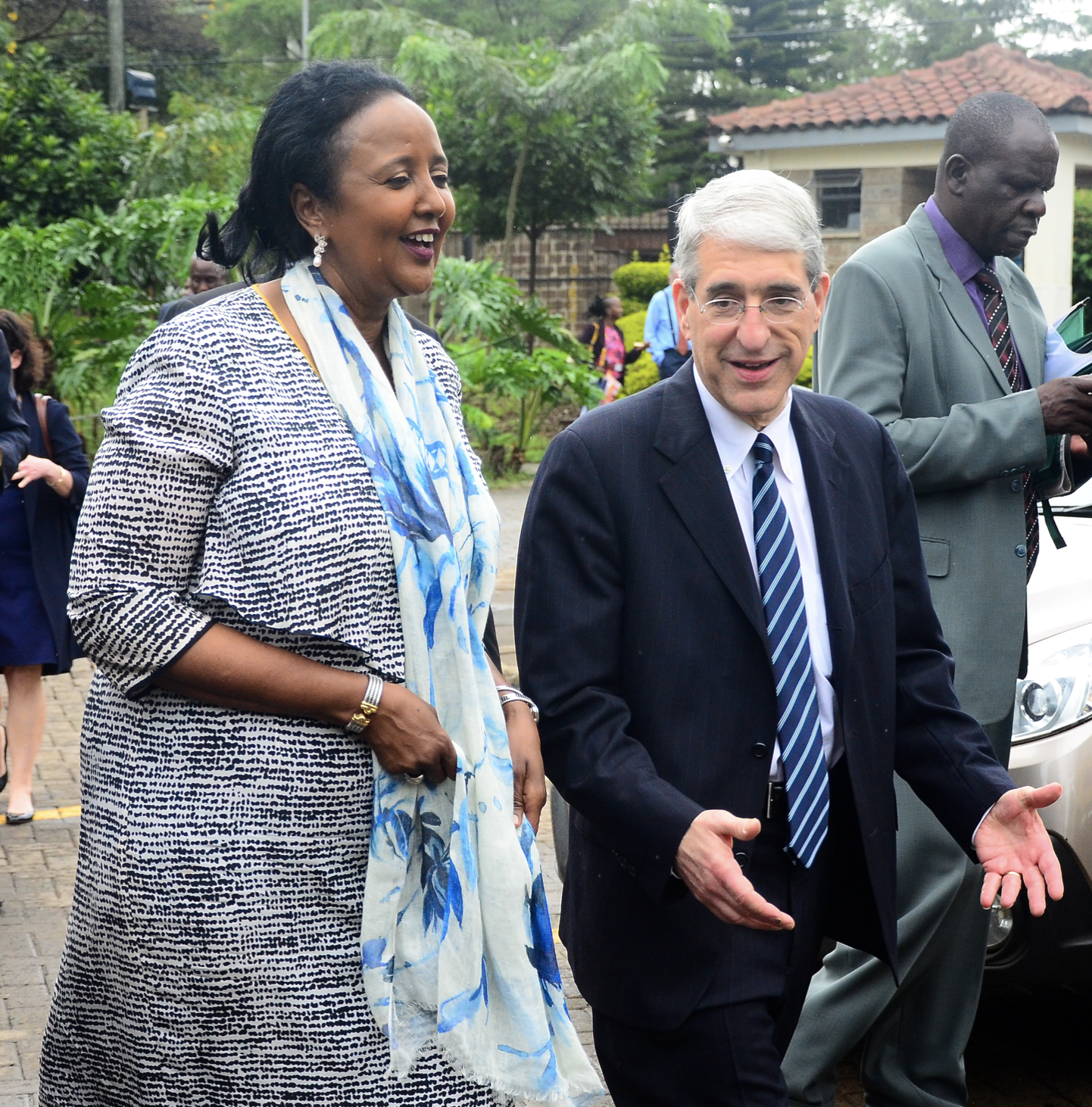
Courtesy of the Yale Office of International Affairs
Despite travel restrictions during the pandemic, the University has continued to prioritize strengthening its ties to Africa, an area which University President Peter Salovey has emphasized throughout his tenure.
While former University President Richard Levin outlined relations with China as a key priority — even saying that the next 100 years would be a “China century” — President Salovey has moved the University’s focus to Africa. Salovey has long called for Yale to develop its ties to the continent, outlining it as a priority in his 2013 inaugural address as University president. In 2018, he became the first sitting Yale president to visit the continent, traveling to Kenya and Ghana. Even during the pandemic, the University has continued to develop its relationship with Africa through research collaborations, virtual programming, alumni connections and personal relationships.
“Africa, continent of 54 countries, population of 1.2 billion plus people, it’s an important continent, cradle of mankind and also a place where there are tremendous transformations happening in technology and innovation in mobile money and finance,” said Eddie Mandhry, director for Africa and the Middle East at the Office of International Affairs. “It’s an interesting place, very dynamic.”
Yale administrators and researchers alike have increased their physical presence on the continent in recent years. Vice President for Global Strategy Pericles Lewis visited Ethiopia, Uganda and South Africa in 2019. The School of Public Health and School of Medicine have also engaged in research with colleagues in Rwanda, Uganda and Ethiopia, among other countries.
Though the University would ordinarily have administrators and researchers traveling to and from Africa, the pandemic has made such travel impossible. Yale has therefore shifted some of its programming online. For example, the Yale Young African Scholars Program — a program to identify talented, underserved students in Africa and help them on a pathway to higher education — was remote this year.
“The global pandemic has created significant constraints in terms of our ability to navigate and travel around the world, including around Africa,” Mandhry said. “There are challenges in not being able to interact and create a sense of community that you might have in person.”
Yet multiple departments at the School of Public Health are currently expanding their collaborations with colleagues in Africa, Dean of the School of Public Health Sten Vermund told the News, most recently with new grants to work with scientists in Sudan and Rwanda.
“Life expectancies are lowest and child/maternal mortality rates are highest in Africa, so anyone interested in alleviating and preventing disease will be interested in Africa,” Vermund wrote in an email to the News. “Much progress can be made with an emphasis on prevention, public health, and primary health care.”
One of the chief areas of academic collaboration with Africa is in public health, Mandhry said. The Yale Institute for Global Health has set up a site in Ethiopia to conduct research and provide technical assistance. Additionally, some public health officials from Ethiopia have come to Yale for leadership training.
Epidemiology professor Luke Davis said he hopes for more similar partnerships in the future.
Davis, who does research in Uganda, said that the country has built up a strong public health infrastructure and approach to health crises. It has dealt with the AIDS epidemic, Ebola crisis and a number of other outbreaks in recent years. As such, community members have faith in their leaders, Davis said.
In normal times, administrators’ trips to and from Africa also allow them to keep up contact with people in the private and public sectors, particularly with alumni on the continent. The governor of the Central Bank of Kenya received his doctorate from Yale. The former chief justice of the Supreme Court of Rwanda is a graduate of Yale Law School. And the most recent former president of Malawi is a Yale graduate, according to Mandhry.
“Wherever possible, we bring the University’s leadership to the continent so they can update our alumni of what we’re doing on campus, we can learn more about what their interests and priorities are and look for ways to deepen our connections with the party,” Mandhry said.
It has been an “ongoing effort” to fundraise for scholarships and programs in Africa, he added. The University has focused on bringing students from the continent to Yale and on creating an alumni network and finding career opportunities for alumni in Africa.
Yale researchers have also developed personal connections through frequent travel between the United States and Africa.
“As soon as we heard about the pandemic coming, of course, all of us immediately thought, what would happen in Africa?” Davis said.
After colleagues at Zhejiang University led a webinar to share their experiences battling the coronavirus with Yale experts, the University reached out to colleagues in Africa to lead a similar webinar with researchers and government health officials in Africa.
“This was so inspiring to us that we decided to immediately pay this forward,” Vermund wrote. “We initiated webinars with our colleagues in multiple African nations.”
These countries included Senegal, Burkina Faso, Uganda, Sudan and Ghana. Additionally, Yale worked with Egypt to identify the outbreak that introduced SARS-CoV-2 into the country.
The researchers have developed a bi-directional information flow during the pandemic. The United States has seen more coronavirus patients and can provide information on how to equip hospitals to handle the capacity. Meanwhile, some African nations have experienced greater success than the United States in controlling the virus and can therefore offer advice with regard to public health.
The Yale Africa Initiative started in 2013.
Rose Horowitch | rose.horowitch@yale.edu







